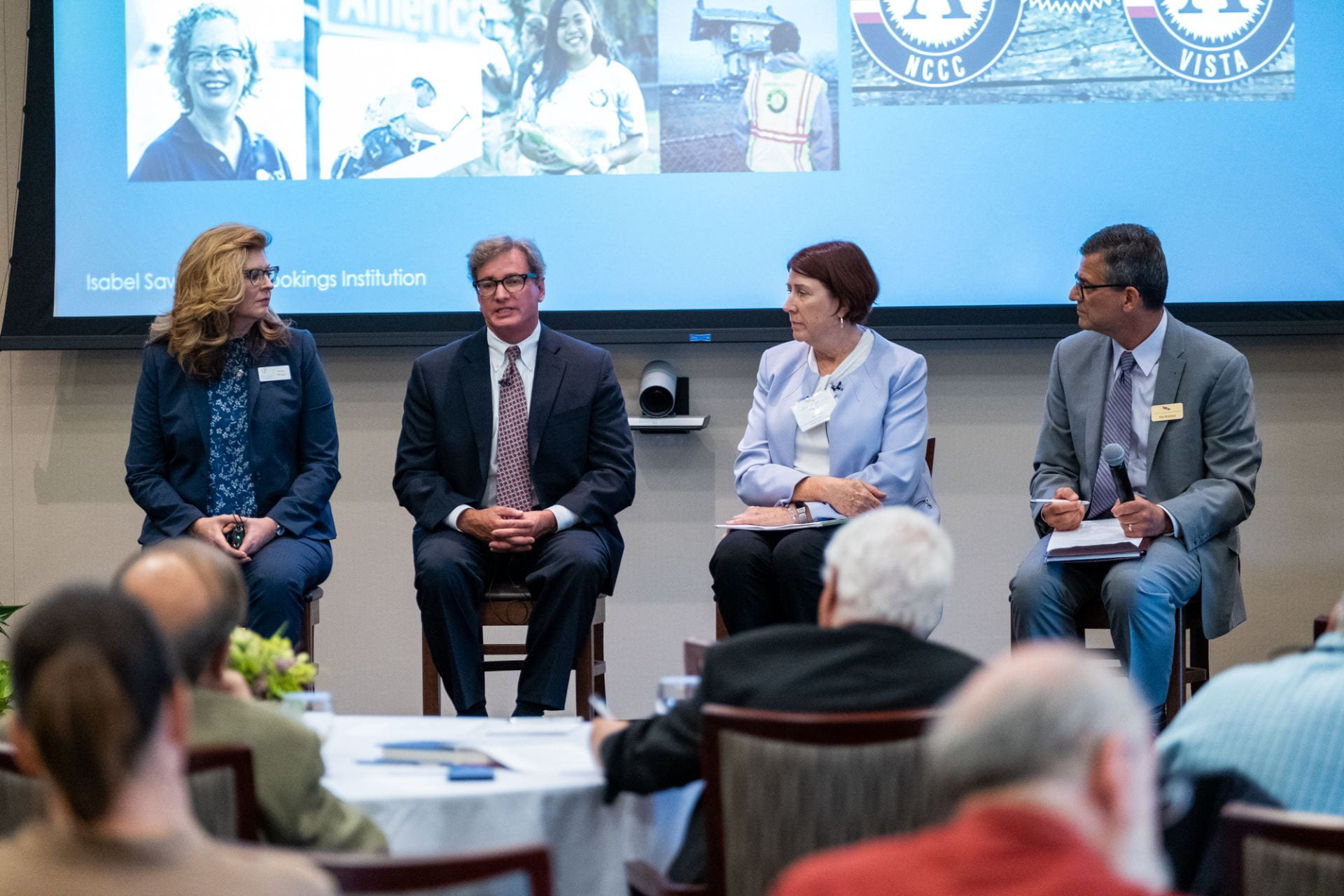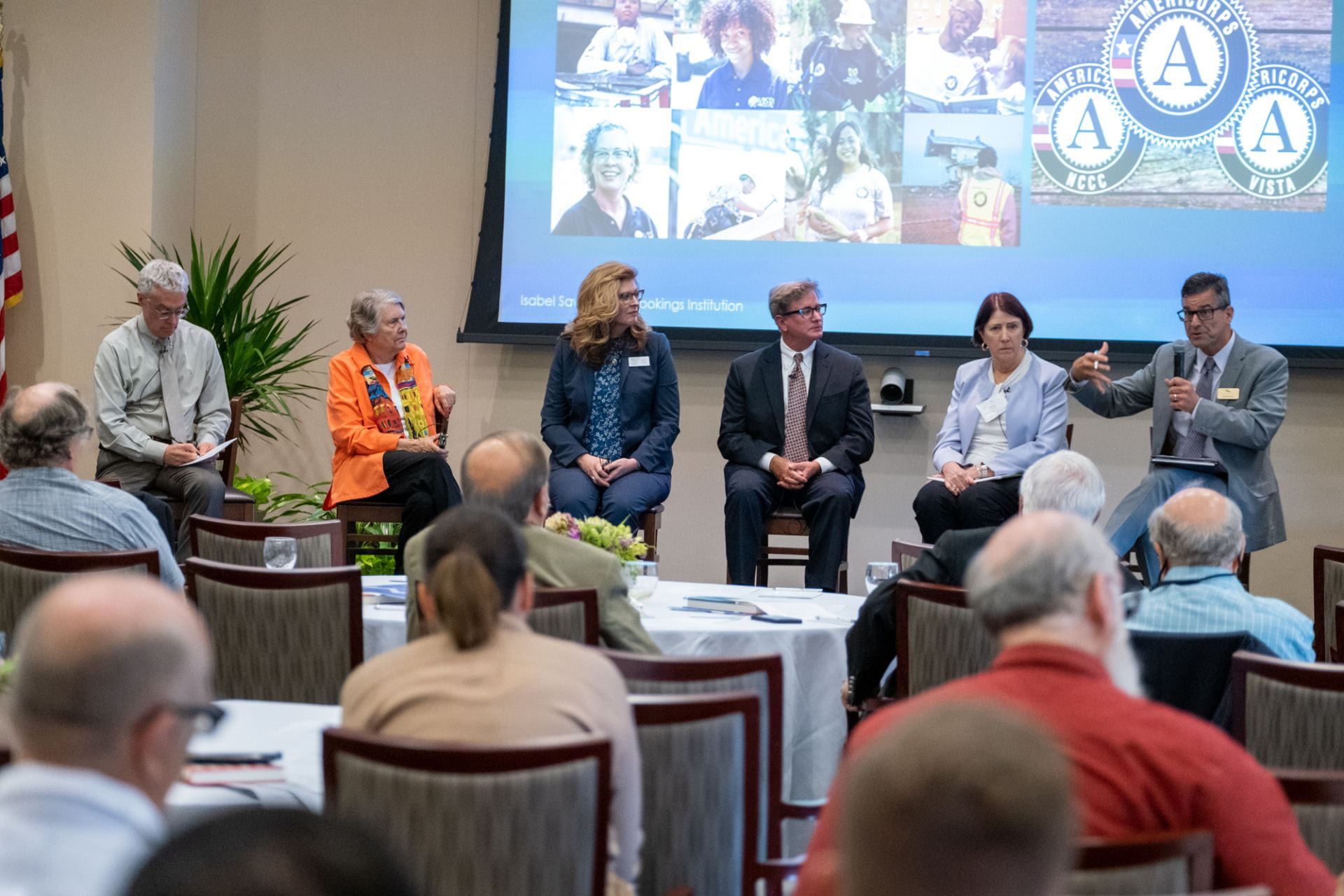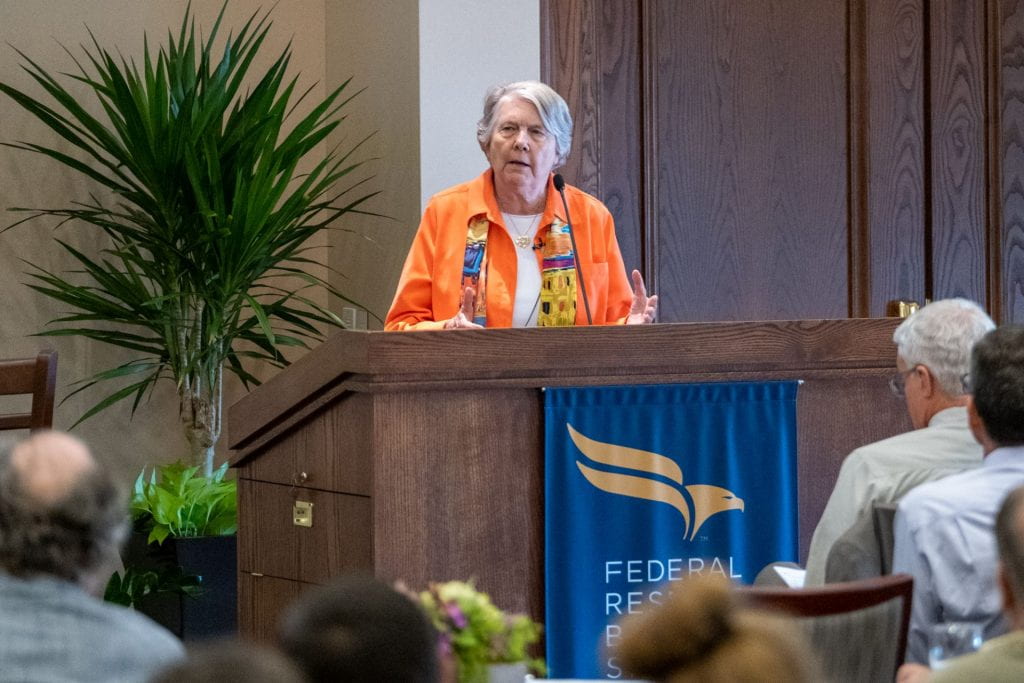Isabel Sawhill thinks too many researchers are more interested in publishing papers than making sure their work has major impact. “An awful lot of researchers are not asking the right questions,” says Sawhill, Senior Fellow, Economic Studies at the Brookings Institution. “We need to push scholars to do more research on big questions.”
Sawhill was in St. Louis Sept. 19 to talk about one of those big questions: Why the white working class in America is in decline. Her presentation was followed by a panel discussion hosted by the Center for Household Financial Stability at the Federal Reserve Bank of St. Louis and the Center for Social Development at the Brown School, Washington University in St. Louis. The event was moderated by the St. Louis Fed’s Center director, Ray Boshara.
In interviews before the presentation, Sawhill and two of the panelists discussed how new research could boost efforts to help working-class families and communities in disrepair.
“Our biggest need is for data at the city and community level,” said Alice Wingo, Vice President of Affiliates for the Community Foundation of the Ozarks. The organization guides the distribution of $400 million in grants for regional community development efforts in Southwest Missouri.
She said data that describes characteristics of towns and counties, such as information on population, demographics and income, could help to more accurately craft community development plans. It would also give communities a better sense of identity. “The data would empower them to feel knowledge of their own community,” she said.
Sawhill agreed about the need for data and added that access to existing data was also a problem. “It’s difficult for researchers to get access to the data they need, partly due to privacy but also because big, sprawling agencies don’t speak to each other,” she said. “A clearinghouse would be useful.”
Another panelist was Jay Bassett, Division Chief for the Governor’s Dislocated Worker Task Force with the Arkansas Division of Workforce Services. Its mission is to alleviate the impact of layoffs on workers and communities that lose tax base as a result.
Bassett said his agency is trying varying ways to retrain workers and convince them to accept help, but that more evidence-based research could make those efforts more effective. “We need evidence on which approaches work best,” he said. “There is no consensus right now.”

Sawhill, who was Associate Director of the Office of Management and Budget during the Clinton administration, agreed. “I always wanted to see the evidence: Are these programs working?” She recalled of her days at OMB, where her responsibilities included all federal human resource programs. “You can’t just throw the money out there, you need accountability.”
“The young scholars need to get out there and find out what’s working on the ground.”
The program began with a presentation by William R. Emmons, lead economist with the Center for Household Financial Stability and a co-author of the recent report: “The Bigger They Are, The Harder They Fall: The Decline of the White Working Class.” Video from the event can be accessed from the center’s website.

Emmons said the research showed declines in white working-class population, wealth, and other indicators of well-being, even as white college graduates and members of the nonwhite working class have been advancing.
Panelist Nancy Cross, Vice President of the Service Employees International Union Local #1 in Missouri, said she has seen the decline. “Now, people are working two jobs just to make ends meet,” she said.
It was a theme that Sawhill pursued in her 2018 book The Forgotten Americans: An Economic Agenda for a Divided Nation.
Sawhill said the research in the book was prompted by the 2016 election victory of Donald Trump, attributed to dissatisfaction among working-class voters. “People were fed up and wanted change,” she said. “They had a right to be frustrated.”
The solution, she said, is to focus on the importance of work, mainstream values, universal national service and political reform.
